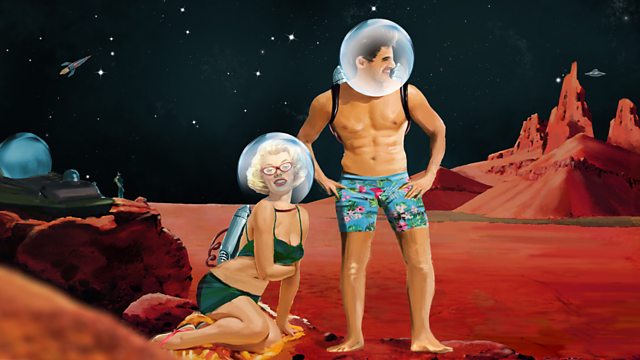Start-up Planet
What future do we have on the Red Planet? Kevin Fong asks scientists and writers about their visions of a human presence and purpose on Mars. Will we ever become truly Martian?
For Radio 4's Mars series, Kevin Fong asks: what future do we have on Mars when we finally get there? He talks to scientists and writers about their visions of a human presence and purpose on the Red Planet. This is the third part on this series on our relationship with Mars.
The American space agency NASA aims to get the first human crew to Mars sometime in the 2040's. It is likely to be an international mission and carry a crew of six people. Elon Musk, the founder of private rocket company SpaceX, has unveiled a scheme to get a spacecraft of one hundred colonists to the Red Planet before 2030.
Do we go to Mars for the big science questions and exploration? Or is Project Mars about becoming a multi-planetary species, extending the American western frontier by a hundred million miles? Do we need to prepare Mars as a refuge should civilisation face extinction here on the home planet.
Even the first boot print mission will be the mother of all camping trips, and full of hazard. Mars' tenuous atmosphere contains no oxygen, the average temperature is -60 degrees Celsius, the surface is bathed in cosmic and solar radiation and toxic dust lies all over the planet. So some Mars enthusiasts predict that our presence there will never amount to more than something like extraterrestrial Antarctic style bases, where visiting scientific explorers and back-up technicians live and work for a few years at a time before returning to Earth. But for others, the vision is much grander and more ambitious. Colonies will become city sized and economically productive, trading technological innovations with the home planet. Generations of people will live and die in societies free from oppressive authority on Earth.
Kevin Fong hears from would-be Martian explorers such as Elon Musk and Robert Zubrin. Robert Zubrin is president of the Mars Society and is credited with coming up with the basic technical strategy for mounting a return trip to Mars which both NASA and Space X have adopted. If we do this in our generation, says Zubrin, within two centuries there will be self-sustaining communities on Mars with their own dialects, cultures of technological and artistic invention, and their own history of 'heroic deeds'. This is romanticism to others such as Oliver Morton, author of 'Mapping Mars', and that Mars is no place for civilians. let alone children. With gravity little more than one third of Earth's, a successful human pregnancy may in fact be impossible.
That's one of the many unknowns about the future of humans on Mars revealed, as Kevin talks to the scientific Mars visionaries such as Chris McKay of NASA Ames Research Center and Pascal Lee of the Mars Institute, and to science fiction authors such as Kim Stanley Robinson, Emma Newman and Stephen Baxter who've imagined people on the Red Planet.
Producer: Andrew Luck-Baker
Sound engineer: Tim Heffer.
Last on
Clips
-
![]()
A seven-minute VR trip to Gale Crater on Mars
Duration: 07:20
-
![]()
How Mars colonists will live off the land
Duration: 03:41
Broadcast
- Wed 8 Mar 2017 11:0091�ȱ� Radio 4






